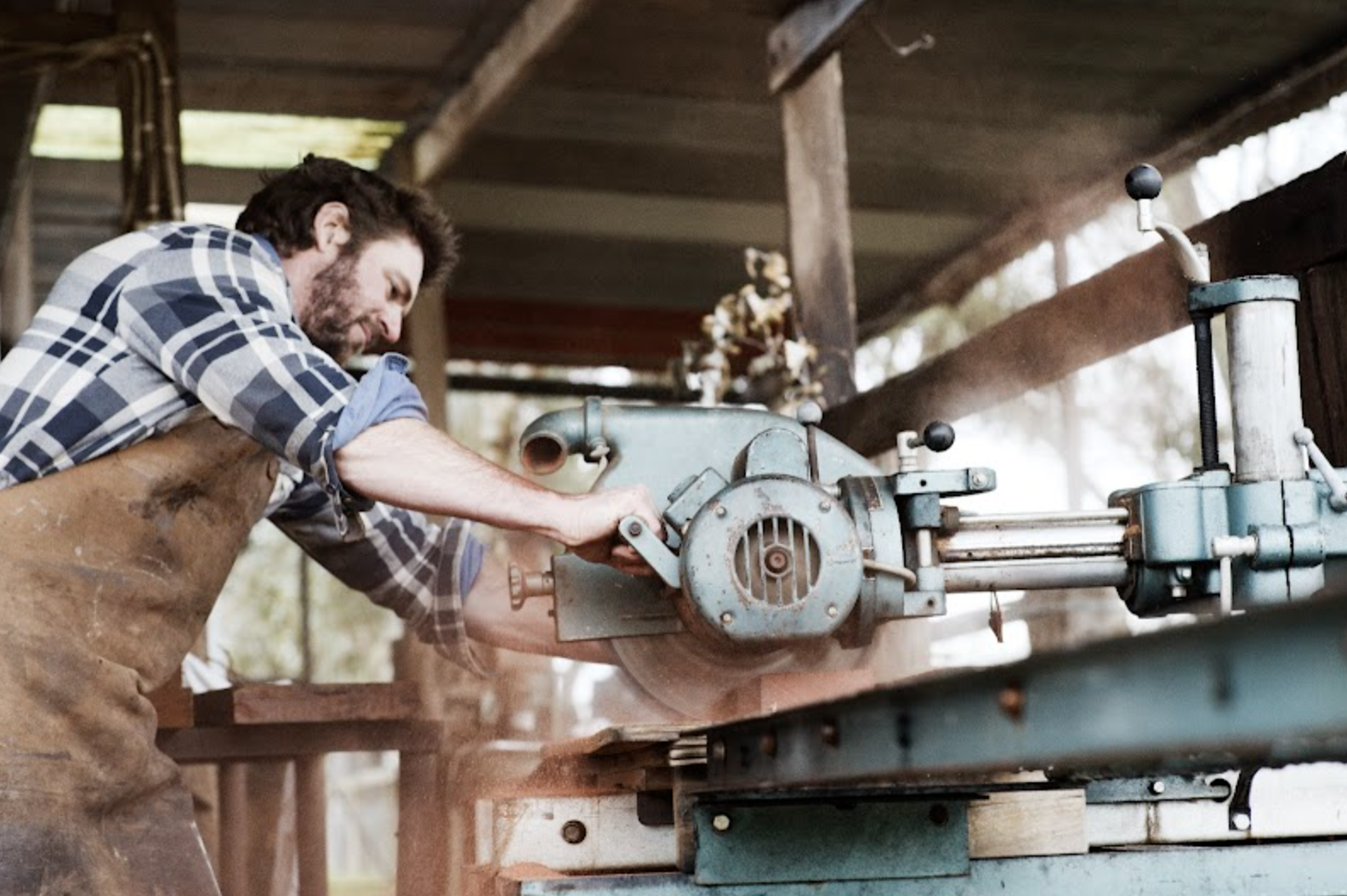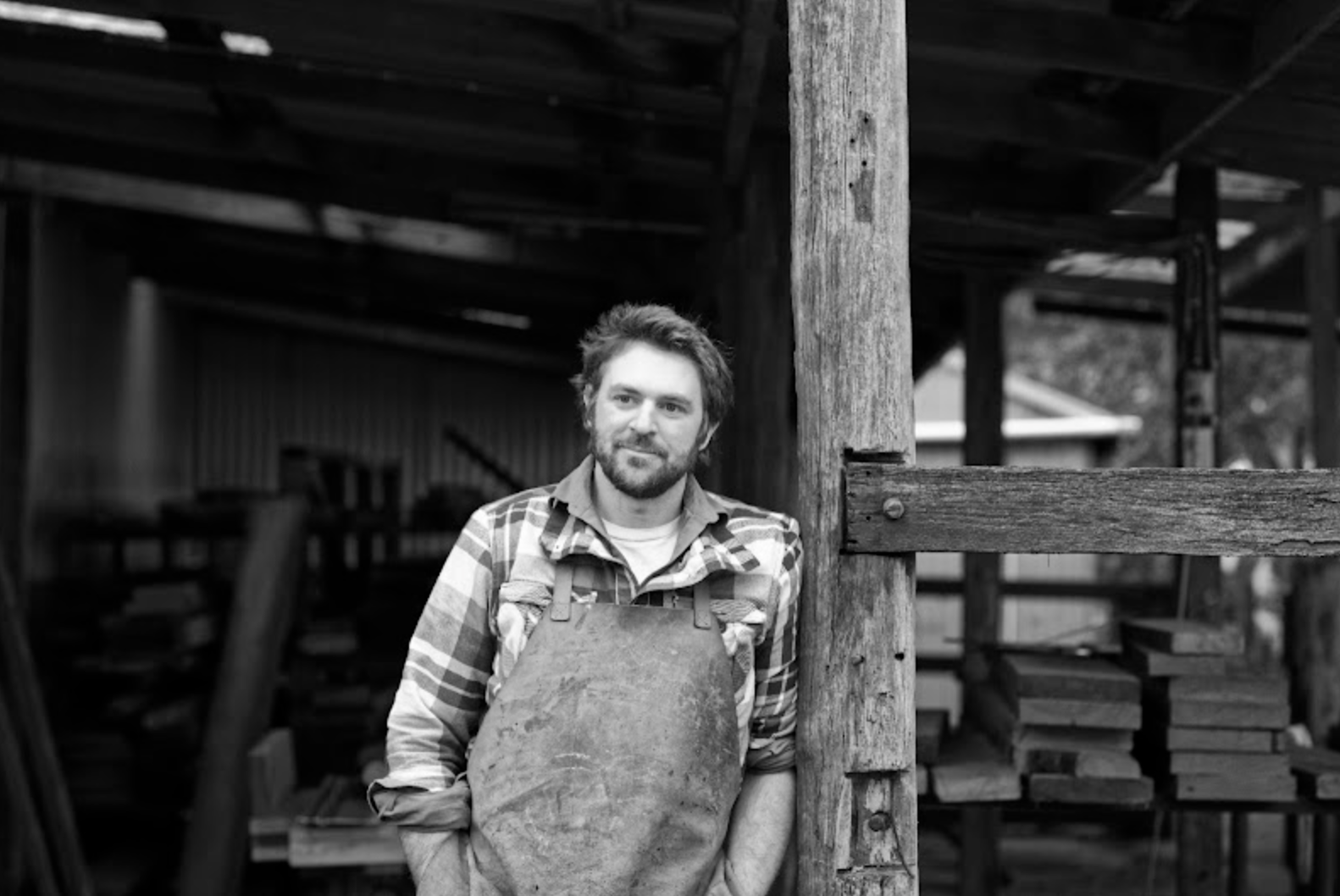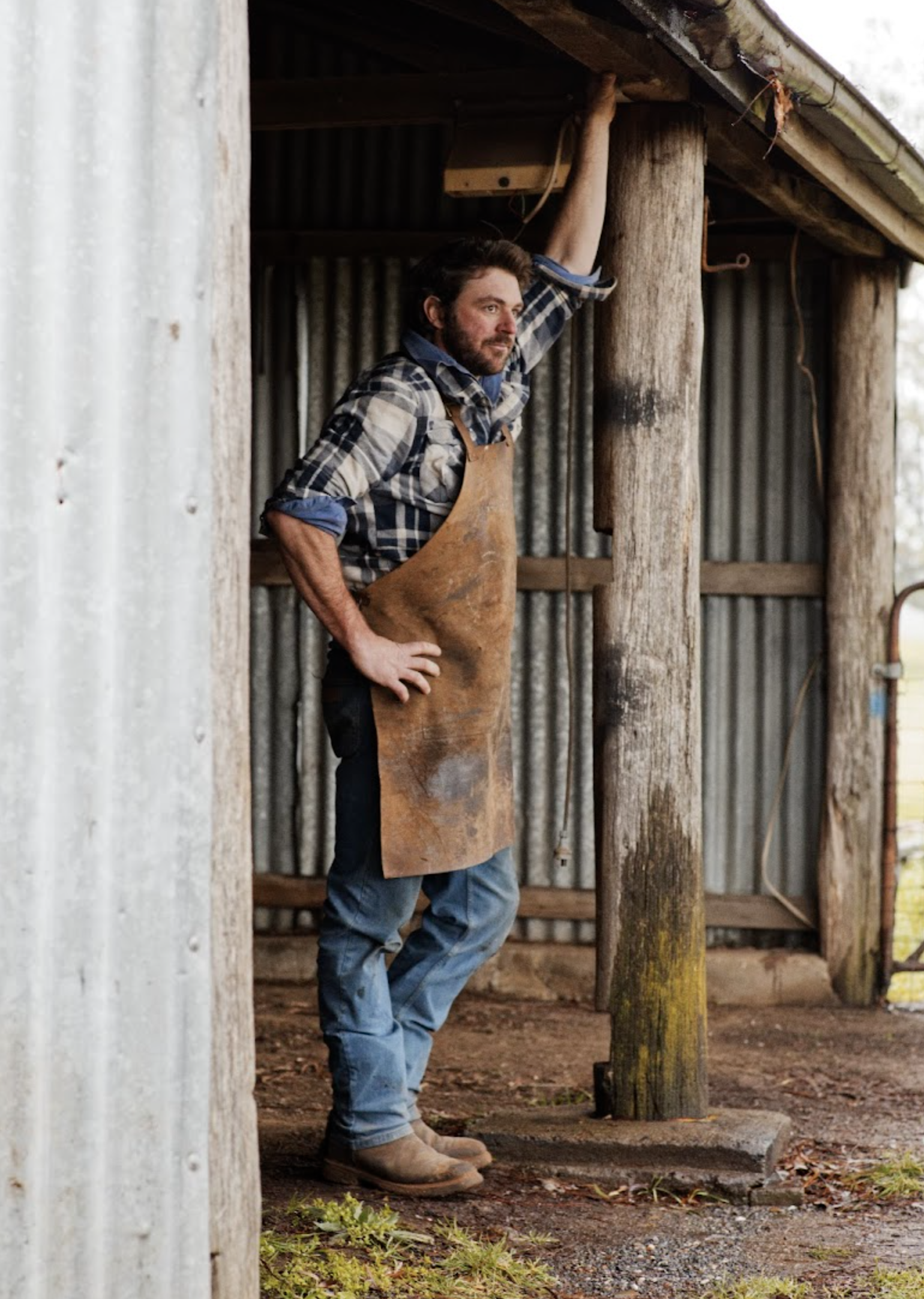Tom Baker
Article by Alice Armitage Photography by Luke Burgess
“You have to know how to adapt working on the land, it’s the same with reclaimed timber.”
Unlike many of our European counterparts, Australia has yet to build a legacy of what craftsmanship means to us, but some, like our friend Tom, are pointing us in the right direction. Although he would never say so (he’s far too humble) Tom is bringing light to a new era of self taught craftsmen here in Australia. He now lives just south of Orange, spending his days creating custom built furniture from reclaimed timber.
Born on the land, in Mallaley in New South Wales’ North West, Tom never really thought of a future outside of farming. His path to building furniture was a subtle one, and was far from predefined. As all country kids know, you learn a thing or two about putting things together as you grow up on the land, but it wasn’t until Tom was working on a corporate run farm, that he started making his first timber pieces. Tom’s deeply ingrained intuitive farming methodologies continued to contradict the seemingly detached management approach of the corporate farms he was working on. Breeding a dissatisfaction that saw Tom explore other options for himself, and he started to dabble in making a few odd bits and pieces from timber he found. His keen eye saw potential for a new life for timber that otherwise would be going to waste. With a basic understanding of tools, Tom got to work teaching himself the art of furniture making.
“I could get started because I had an understanding of how tools work, which came from my upbringing on the land. I wouldn’t have had that skill set otherwise.”
Over the last few years, many farming families have been experiencing the financial implication of our changing climate and a generation of country kids, once destined to eventually move home to work on the family farm, are facing a new reality. Igniting many discussions around alternative pursuits, and the possibility of needing to create alternative income off farm.
But necessity fuels invention, and is encouraging people to reclaim traditional practices, like furniture making, and adding a contemporary twist to attract a modern, conscious customer to generate an income. We might still be working to figure out how to truly position this new working dynamic, but the emergence of self-taught craftsmen like Tom is bringing untapped opportunities for entrepreneurship and the development of a regional culture driven by craftsmanship.
Tom is a quintessential man of the land, evident by his earthy nature and humility. His strong connection to the country plays a huge role in his approach to his work.
“You have to know how to adapt working on the land, it’s the same with reclaimed timber. Nothing is square, nothing is straight. You can’t just measure it out and think it’s all going to be dandy. You have to be ready for change and to have some foresight as to how the timber will move as you work with it.”
With most of Tom’s pieces going straight to Sydney, and with a wait list nine months long, there is certainly demand across both regional and metropolitan demographics for his sustainable, authentic products. Tom, and many others like him, are seeing the attitudes of consumers changing, making room for unique pieces that have an origin story just as appealing as the furniture itself. ‘When you’re using recycled materials, nothing is going to be the same as the next, it’s what makes every piece so good.’
Spend some time with Tom in his workshop and you’ll see how much care goes into every piece he makes. Continued learning is always at the centre of his process.
“I’m always having to figure out new ways of doing things. Someone will come to me and ask for something specific, so I just figure out how to do that thing. It’s how I’ve built my skills and how I continue to develop them. I don’t think I’d have the mindset to do what I do if I’d had conventional training. My approach would be too prescribed and I would have lost the fluidity that you need to make reclaimed timber work.”
If you’re interested in seeing more of our work - we hope you’ll consider subscribing to our physical paper here.



